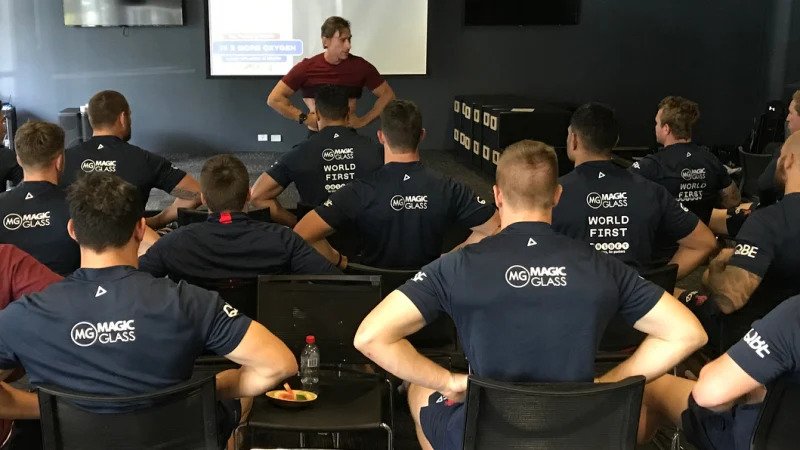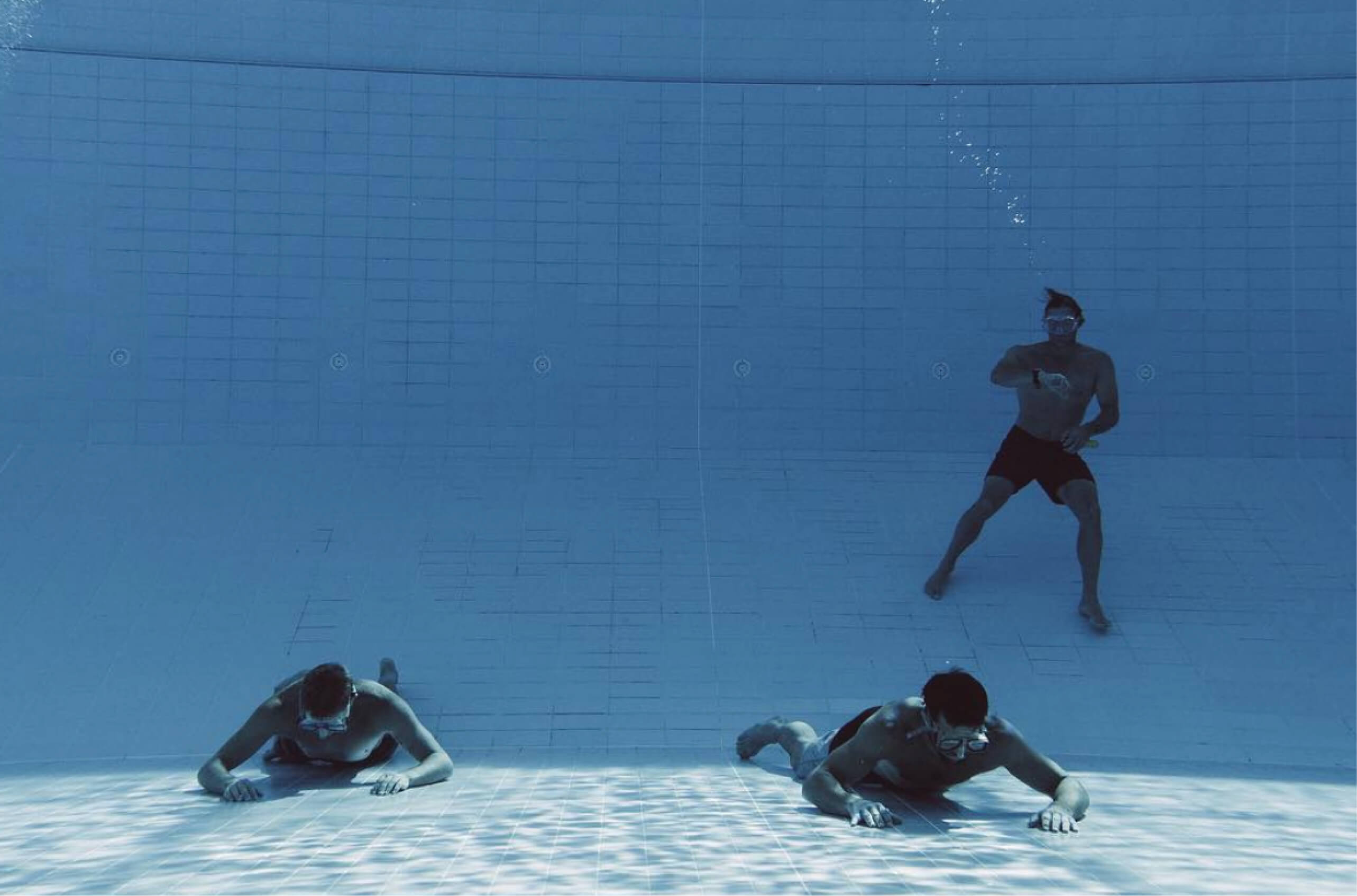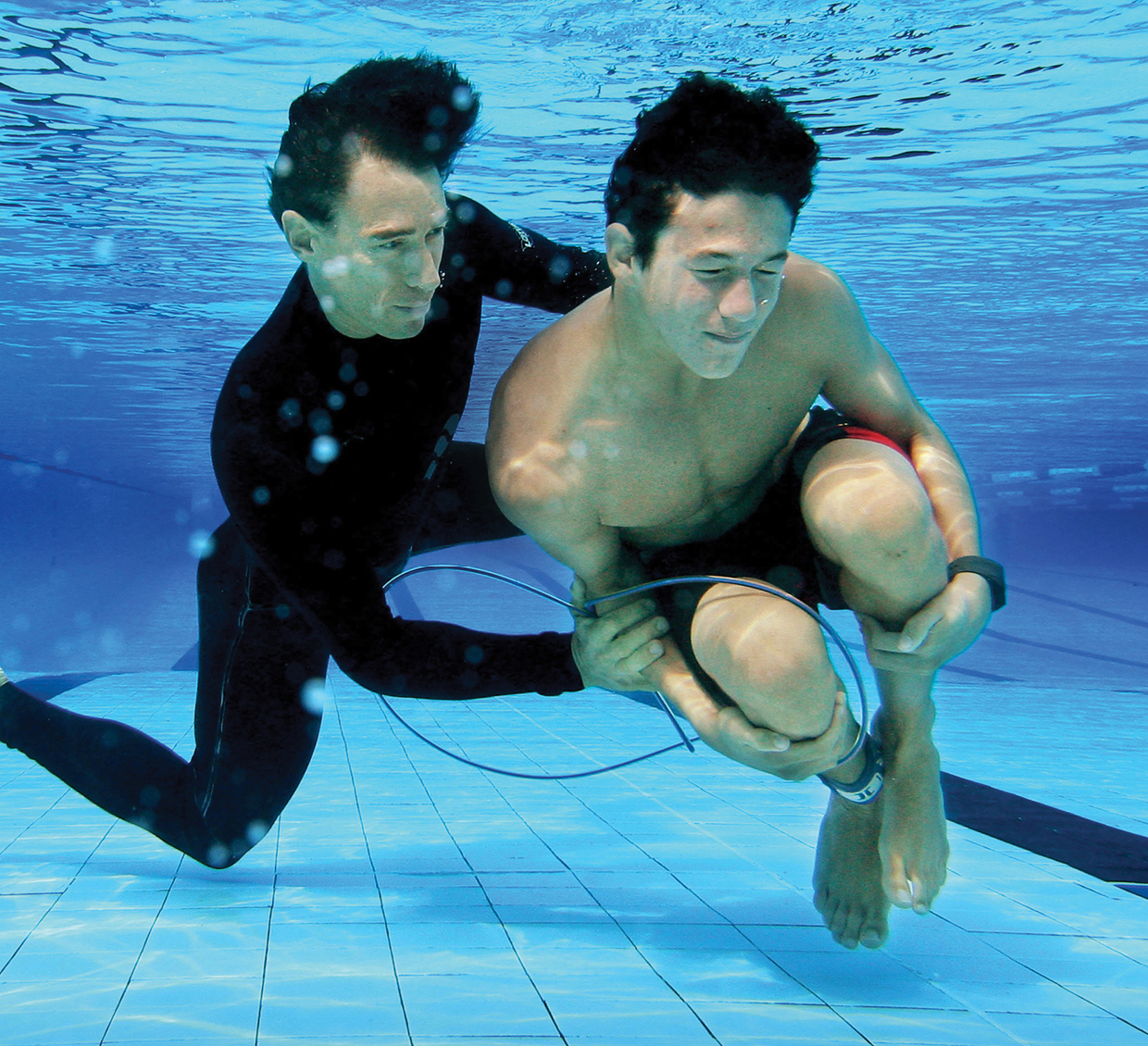Roosters Quest for Premiership Glory
The breathing-enhancement expert who guided Mick Fanning and Pat Rafter to the top of their sports has emerged as the secret weapon in the Roosters’ quest for premiership glory.
After falling just short of a grand final in three of the past four seasons, the Roosters have shaken up their approach in their quest for another title. The club welcomed Nam Baldwin, described on his website as a “highly qualified emotional and stress control/management specialist”, to work with the squad on breathing techniques. Baldwin has worked with elite athletes, including world surfing champions Fanning and Stephanie Gilmore, tennis ace Rafter and Australia’s Olympic kayak gold medalists in the K4 1000 metres.

‘Stress specialist’: Nam Baldwin conducts breathing exercises with the Roosters.
The Roosters also went alternative in the pre-season with their diet, going on a 24-hour fast during which the players had to ingest activated charcoal, diatomaceous earth and two mouthfuls of sea water. The regimen was introduced by Keegan Smith, the son of former Roosters coach Brian, with a view to boosting immunity and improving gut health.
Baldwin held several sessions with the players, teaching them to control their breathing to maximise performance. One of the key exercises was pushing the limits with players underwater to see how long they could remain submerged before surfacing for air. Baldwin has previously shared his techniques with the New Zealand Warriors, a raft of big-wave riders and also corporate clients seeking a physical and mental edge.
Baldwin’s greatest advocate is Fanning. The three-time world surfing champion has provided glowing testimonials and has credited the techniques he learnt in the pool with improving his performance in the surf.

Crossing mental barriers: The Roosters work with Nam Baldwin underwater.
Roosters players spoke glowingly of the time they spent with Baldwin.
“I found it cool, what you can do to push your body further,” said forward Victor Radley, a surfing ethusiast. “I like pushing myself.
“At the start of the day you think, ‘I can’t hold my breath for that long or do this underwater’, but at the end of the day you’re doing stuff you thought you couldn’t do.
“It would help when [your heart rate] is through the roof [in a game]; thinking back to that would ground you a bit, remembering the stuff he taught us and getting your mind back on the job.”
Utility Mitchell Aubusson said players had embraced Baldwin’s ideas.
“You see guys like Mick Fanning before a contest do a lot of breathing to get himself into a certain zone he likes to compete in,” Aubusson said.
“There was a bit of controlling your breathing in tough situations out on the field. If it’s the 60th minute and you’re really tired, getting your breathing under control and back to a level where you can go again. That was the main thing.”
Some of the players were less enthusiastic about the fasting. Aside from not eating food for a day, they engaged in tongue scraping and coconut-oil pulling, requiring oil to be swished around the mouth to aid oral hygiene. Players were told to drink herbal teas and alkaline water, as well as a couple of scoops of seawater.
The players were told to practice their breathing techniques at one of the eastern suburbs beaches and ingest a raft of soluble substances believed to have cleansing properties.
“I didn’t do some of the stuff; I’m not going to drink beach water,” conceded centre Joseph Manu.
“There was apple vinegar [cider] we had to drink and I was like, ‘Nah, I’m not doing that.’”
Radley added: “We’re all big boys – I reckon Dylan Napa would have struggled with the fasting.
“That was a bit different. We did a lot of weird stuff during that fast. I’ll always try stuff once. I didn’t mind it.”
Dietician Joanne Turner, who has worked with a number of elite sporting teams, including Parramatta and Cronulla, believed the fasting and ingesting of ‘’cleaners’’ could have a detrimental effect.
“I certainly don’t condone any of those kind of behaviours,” Turner said. “I can’t see why they would want to do anything like that. As a sports dietician, it’s certainly not what sports research has shown to improve performance. It’s certainly the opposite of carbo loading, isn’t it?
“Maybe it builds toughness and is a psychological test, but it certainly doesn’t have any sports nutrition.
“If anything it will have a detriment, because sports nutrition can have up to a 12 per cent improvement if you eat properly within 48 hours of performing.
“I’ve worked in the NRL for 10 years and I wouldn’t want to walk through the bathrooms after the players did that.”
However, Aubusson thought the left-field preparation was beneficial.
“It was a bit of a detox,” he said.
“It was about footy, but it was also teaching your body how to deal without food and different things, just to see if you can do it, to push that mental barrier.
“It will stick with a lot of us after footy, the recovery of the body. We get into 26 rounds of car crashes every year so we have to be looking after ourselves away from the field and further down the track in life.”
This post was originally on…



